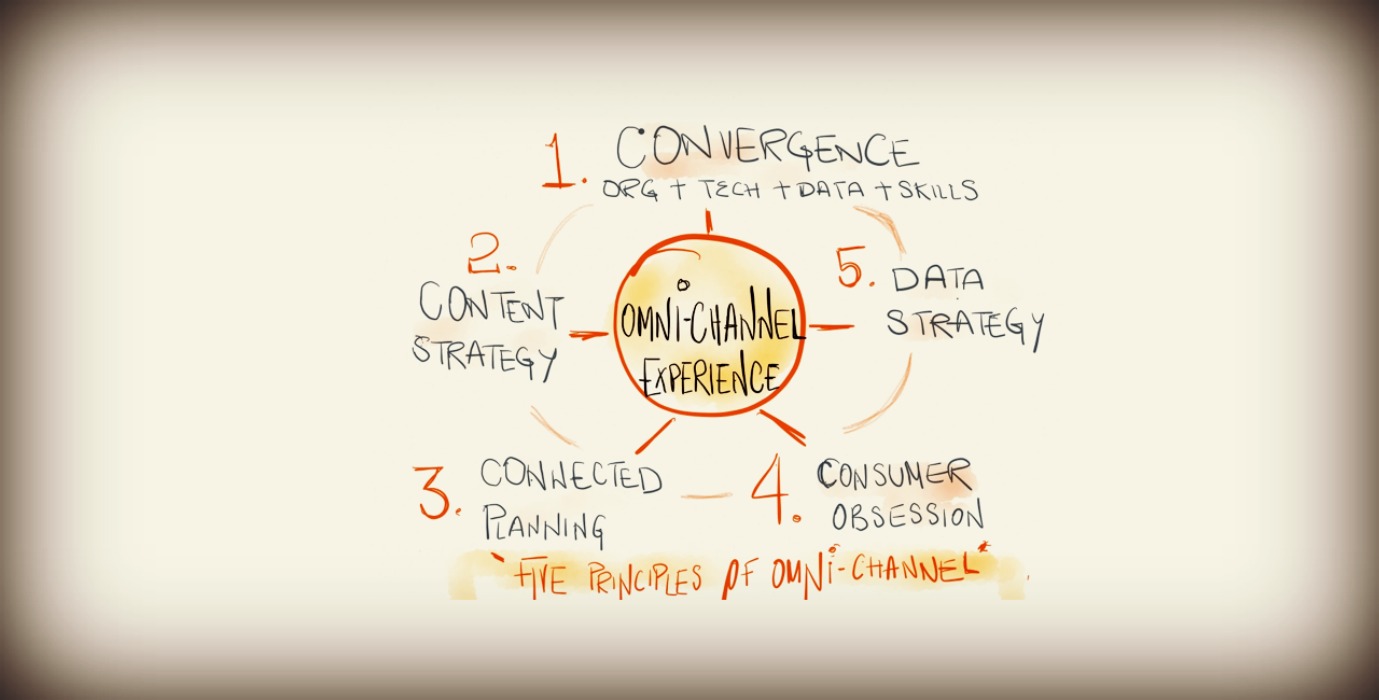There has been enough said and written about Omni Channel Experiences from two perspectives – Firstly, why it is unreal and still a myth through my own posts like The Omni Channel Paradox, Omni Channel Far From Being a Reality and others. Secondly what an Omni Channel experience really means for brands and consumers and why it is imperative for every brand to solve this puzzle and inspire behavioral change.
However not many brands and marketers have been successful in deploying omni-channel strategies for a simple reason – we are operating on top of an increasingly broken and fragmented ecosystem that is CHANNEL FOCUSED and not CHANNEL AGNOSTIC. The shift requires fundamental change; I call these the FIRST PRINCIPLES OF AN OMNI-CHANNEL STRATEGY (in no specific order):
- DRIVE CONVERGENCE – The need to break the silos, bridge the fragments across the organization and fundamentally within the marketing ecosystem, read the blog post on why “Fragmentation Is Holding Marketing Back”:
- Converge Across Organizational Models & Functions (marketing and eCommerce, marketing and sales cannot be isolated for instance)
- Marketing Technology Convergence towards building a connected ecosystem
- Converging Data Silos – Driving Data Harmonization
- Converging the Skills of a Modern Marketer – From a T Shaped to Pi Shaped, the marketing unicorns
- CONTENT STRATEGY – Develop a holistic content strategy that helps you deliver the right content for the right consumer with the right context at a time and touch point of her choice. Content together with Data & Technology are the only channel agnostic lynchpins that can drive an Omni-Channel experience with content delivering the final punch with an immersive and seamless consumer experience, inspiring behavioral change through participation.
- CONNECTED PLANNING USING CONTENT, DATA & TECHNOLOGY– Establish a planning process that inspires data driven marketing, connecting content, data and technology together with a central focus on the consumer. It’s breaking away from the traditional planning constructs that are “CHANNEL DRIVEN” to basing the plans and strategies on data and consumer insights and using that to determine the “right content” across the consumer journey, especially focusing on certain inflection points where you require a change in the consumer behavior.
- FROM TECHNOLOGY & CHANNEL TO CONSUMER OBSESSION – Shift from a technology and channel obsession to consumer obsession, a concept that I shared about in my recent blog – The Perfect Imperfection, The Technology & Channel Obsession. Ultimately it boils down to how we measure success for people, whether it is about great technology solutions, driving cost saving and scale OR is it really about driving consumer experiences, inspiring participation and behavioral changes and eventually top line growth. Unless we establish these “consumer focused” goals as a common vision and measure of success for everyone, we will continue to see examples of technology and channel obsession. After all we are rewarding and recognizing that behavior.
- DATA STRATEGY – Lastly and perhaps most importantly, establish a data strategy that focuses on Data Harmonization and Data Convergence, for data is the lynchpin that stitches the consumer journey together. It is the only signal that we get as she moves from one touch point to the other. The ability to learn from her past experience to determine her future experience, agnostic of channel will ultimately lead to a channel agnostic, Omni-Channel Experience. You can find more on this on Data Convergence – Marketing Glue for Omni Channel Reality.
Ironically enough, while as an industry we have been talking about our Omni-Channel dreams for a while now, the only component of the ecosystem that is truly operating and behaving in an Omni-Channel way is the CONSUMER, everyone else is MULTI-CHANNEL at best. While these FIVE principles may not be all you will need to become Omni-Channel, these are certainly fundamental for you to even embark on that journey otherwise Omni-Channel will continue to be an abstract theory.





